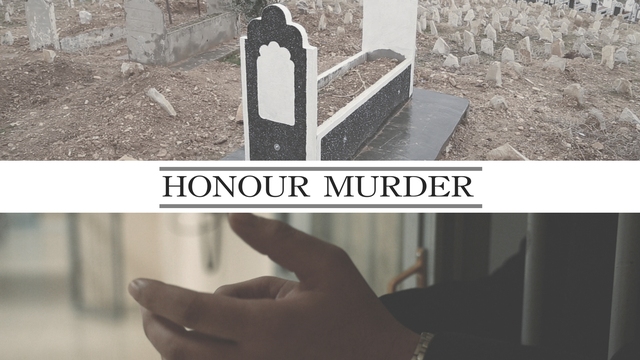Honour Murder
A shocking expose of Kurdistan's culture of honour killings.
 BBC reporter Namak Khoshnaw has returned to Kurdistan, the country of his birth, to investigate attitudes towards honour killings. What he finds is a deeply ingrained practice that normalises violence against women and treats the murderers as victims. But there is hope, in the form of activists like Ronak Farag, who are trying to change perceptions and offer shelter and support to women at risk of death at the hands of their relatives.
BBC reporter Namak Khoshnaw has returned to Kurdistan, the country of his birth, to investigate attitudes towards honour killings. What he finds is a deeply ingrained practice that normalises violence against women and treats the murderers as victims. But there is hope, in the form of activists like Ronak Farag, who are trying to change perceptions and offer shelter and support to women at risk of death at the hands of their relatives.
Ronak Farag examines her photo album. Rather than holiday snaps it contains images of murdered women; the ones she was unable to save. Holding back tears, Ronak tells the camera "It's not just them. I have a folder full and I talk to them. We have dozens of unsolved cases; no one cares about them". She has just lost another of her charges, 21-year-old Sunwr Omar, murdered for dishonouring her family.
The murder of Sunwr Omar was unlike any other: it made the front pages. Fed up and disgusted at the failure of her family to bury her, activists and politicians spoke out at the brutal honour killing culture prevalent in Kurdistan. "We knew that she would get killed because her father clearly told me… that wherever he sees her, he would kill her", reveals activist Ronak Farag.
Nor are the perpetrators ashamed. The practice is open and brutal. An anonymous imprisoned man tells how, "if we hadn't killed her I wouldn't be able to walk on the streets or go to the bazaars. We are tribal and our community does not allow that. I couldn't say 'hi' to anyone, they'd just say - 'look, his sister went with another man'". This attitude also persists in the police. A shocking home video of the murder of a Yazidi teen shows the authorities standing idly by as she is stoned and kicked by the mob.
Leading Namak through a series of gravestones, Ronak explains, "this graveyard is for people who don't have next of kin. Victims of honour killings are buried here. In reality they have families, but are ignored by them". Ronak and her team have colossal cultural and institutional obstacles to overcome, but their resilience remains firm in the face of the recurrent losses of the girls they try to help.
FULL SYNOPSIS
The murder of Sunwr Omar was unlike any other: it made the front pages. Fed up and disgusted at the failure of her family to bury her, activists and politicians spoke out at the brutal honour killing culture prevalent in Kurdistan. "We knew that she would get killed because her father clearly told me… that wherever he sees her, he would kill her", reveals activist Ronak Farag.
Nor are the perpetrators ashamed. The practice is open and brutal. An anonymous imprisoned man tells how, "if we hadn't killed her I wouldn't be able to walk on the streets or go to the bazaars. We are tribal and our community does not allow that. I couldn't say 'hi' to anyone, they'd just say - 'look, his sister went with another man'". This attitude also persists in the police. A shocking home video of the murder of a Yazidi teen shows the authorities standing idly by as she is stoned and kicked by the mob.
Leading Namak through a series of gravestones, Ronak explains, "this graveyard is for people who don't have next of kin. Victims of honour killings are buried here. In reality they have families, but are ignored by them". Ronak and her team have colossal cultural and institutional obstacles to overcome, but their resilience remains firm in the face of the recurrent losses of the girls they try to help.





